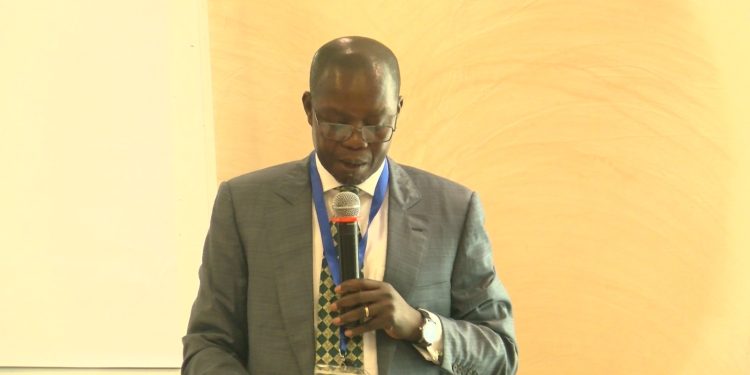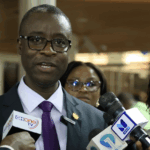
First Deputy Speaker of Parliament, Bernard Ahiafor.
Ghana’s Parliament has launched a digital e-petitions platform and commenced the digitisation of its historic Hansards as part of a broader transformation agenda aimed at deepening citizen engagement, enhancing transparency, and supporting national development.
The new digital initiatives are key components of Parliament’s modernisation drive, which aligns with Ghana’s vision of building an inclusive, technology-driven democracy. The reforms are designed to bring Parliament closer to the people by allowing direct participation in legislative processes and improving public access to legal and parliamentary records.
Speaking at a workshop organised by the Ghana Legal Information Institute on the theme “Sustainable Public Access to Law in Ghana,” First Deputy Speaker of Parliament, Bernard Ahiafor, highlighted the significance of these reforms in promoting democratic governance.
“As our nation moves deeper into the digital age, the world around us continues to change rapidly. Parliament itself has embraced digital transformation—from the e-petition platform that connects citizens directly with legislators to the digitisation of our historic Hansards, making it possible for every Ghanaian to explore how past parliaments have shaped our nation,” Mr Ahiafor stated.
He stressed that the adoption of digital tools in Parliament is about more than just technology. “This goes beyond the use of technology. It is about democracy, fairness and economic opportunity. Transparent and accessible laws strengthen our courts, help our businesses thrive and build trust between the people and their government,” he added.
The e-petitions platform provides Ghanaians with a direct avenue to submit concerns, suggest policy changes, or raise social issues without having to physically visit Parliament. This is expected to bridge the gap between lawmakers and citizens, fostering greater accountability.
The workshop also addressed the broader need for accessible legal information as a tool for dispute resolution and business growth. Dr Mariya Badeva, Director of the African Legal Institute at the University of Cape Town, underscored the importance of strengthening formal dispute resolution mechanisms in Ghana.
“Ghana should pay more attention to alternative dispute resolution techniques—ADR, mediation, and so on. These can be implemented at every level—from civil disputes between citizens to commercial disputes involving large corporations. Dispute resolution is greatly facilitated by access to legal information,” Dr Badeva explained.
Ghana currently stands at 67% on the World Bank’s B-Ready Index, a measure of legal accessibility and business readiness. The African Legal Institute believes that increasing the availability of legal information will help reduce disputes and create a more business-friendly environment.
The new reforms signal Parliament’s intention to position itself as a modern, accessible, and responsive institution—key pillars in Ghana’s ongoing transformation agenda.
DISCLAIMER: The Views, Comments, Opinions, Contributions and Statements made by Readers and Contributors on this platform do not necessarily represent the views or policy of Multimedia Group Limited.
DISCLAIMER: The Views, Comments, Opinions, Contributions and Statements made by Readers and Contributors on this platform do not necessarily represent the views or policy of Multimedia Group Limited.
- President Commissions 36.5 Million Dollars Hospital In The Tain District
- You Will Not Go Free For Killing An Hard Working MP – Akufo-Addo To MP’s Killer
- I Will Lead You To Victory – Ato Forson Assures NDC Supporters
Visit Our Social Media for More




